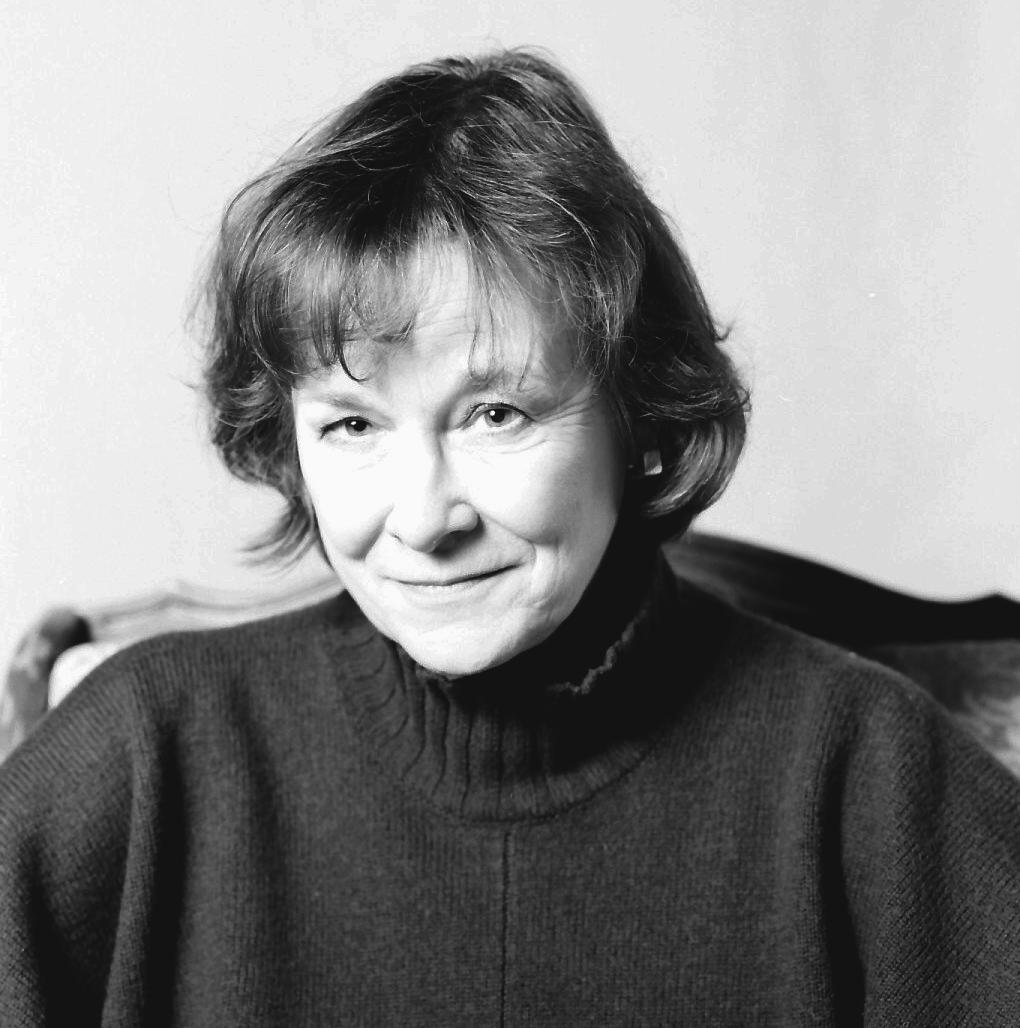
This conversation began with another one. And that one began with a reprinted chapter of Will Storr’s book on people who were unpersuadable—that is, whose beliefs didn’t match agreed-upon reality but were nonetheless fixed. In this chapter, excerpted in Matter as “The Itch Nobody Can Scratch,” the fixed beliefs people had were that they had a disease called Morgellons, in which painful, itchy fibers crawl out of their skin. And that earlier conversation was about how to interview those people. This conversation is about the next, more difficult step: now that you’ve got these interviews with disputable sources, how the hell do you write the story?
Ann: This is a tough question and any answers almost depend on the story. In our first conversation, you said that you don’t generally go on the attack during an interview and any attacking you want to do, “… is done in the copy, by what’s finally revealed.” That assumes you’ve decided to attack. So first of all, how do you make that decision?
Once I wrote a story about child abuse and I wanted to attack both the research psychologists whose research I thought was well-meaning but dumb, and of course the child abusers. But the researchers were doing the best they could with pitiful grants and I didn’t interview any abusers, so I didn’t attack. Or maybe you don’t mean you attack directly, maybe you just mean you lay out the case and let the reader make the judgment.

Will: In those cases, I meant “attack” in the sense that the facts as I see them are laid out on the page. Probably every story is an attack, if only in the sense that you’re assessing the arguments of opposing sides and guiding the reader to the conclusion you’ve come to. Inevitably, one side is going to come off less well.
The most extreme example of this that I’ve done was for a chapter of The Unpersuadables. I met Lord Christopher Monckton who is a former government advisor and high profile climate change denier (and something of a celebrity in Tea Party circles). I wanted to test my idea that the source of much irrationality lies in the stories we tell about the world, and our place within it. So, instead of having a complex (and, let’s face it, dull) back and forth about climate data, I simply said, “Tell me your story.” Then (apart from one point when he appeared to be saying something misleading about his past and I couldn’t help myself…) I was just a nodding machine, smiling and agreeing. What came out was the most incredible tale.
He believes that climate-change bodies are just the latest in a series of attempts by the “jealous” left to destroy capitalism. It started with Communism and now it’s the UN still “using the KGB playbook.” The UN, he thinks, wants to take over the world. Meanwhile, he’s the plucky hero fighting this David and Goliath battle. For me, that reveals far more about his personality and irrationality than any shouty showdown ever could. That’s the clearest example of what I try to do. Give the subject an environment in which they feel they can reveal as much of themselves as possible. I always want to become invisible to them.
Ann: I love that you want to be invisible. That’s how I’ve always felt too—I’m barely in the room. You’ve interviewed way more of these sources and written way more of their stories than I have.
Will: I think the most important thing to do is to actively listen. Don’t go into the interview thinking “this person is evil” and look to catch them out with your devastating prosecutorial interrogation. When they’re trying to answer, don’t be thinking “yeah, yeah, you would say that, wouldn’t you?” My presumption always is that the interviewee experiences the world as a place in which whatever they’re doing and thinking is morally right. So go into that world like a curious explorer. Use your interview to find out about it—who are its heroes and villains? How are its moral and factual contradictions justified and explained away? Don’t be angry at that person, be open to the strong possibility that they’re sincere in their experience of the strange world they’ve created. If you can come back and describe this alien place to your readers, you’ll be reporting something far more interesting, and truthful, than “this scumbag was shifty, defensive and hateful.” You’ll be shining a light into their minds.
Ann: But we’re still talking about how to interview and not about how to decide what the story is. That is, how do you decide what to do with, say, Lord Monckton when you start to write the story about him. Do you follow your interview strategy and just lay out his revelations—“Here’s Lord Monckton, dear reader. Make of him what you will?”—and hope the reader has the mental wherewithal to think it through a bit?
The reason I ask: I wrote a book about scientists who advise the defense department. I laid out what these scientists did (which I thought was good) and how they saw their moral choices (which I didn’t judge), and expected innocently that the readers’ responses would be something like, “My what interesting guys these are. I’m glad to know what their world is and how they think.” But no: I got a lot of flack from people who thought I should have pointed out how bad those scientists were, how conflicted their interests, how corrupt their moral choices. What do you think? Should I have told the reader how to think about them?

Will: First off, I should say that I believe the idea that journalists are really objective is a myth. We’re all biased and largely unaware of our biases, fooled into thinking that we see the world with clear sight, whilst everyone around us flawed. That’s just human psychology. As you know, when your reporting is done, you’re usually drowning in information. Transcripts running many tens of thousands of words, research from books and the internet perhaps doubling that, your own notes and thoughts. The very act of editing all that down into a coherent piece that’s a fraction of that size is, in part, an act of expressing judgement. By choosing the quotes you chose, for the defense department advisors, I expect you were making your feelings felt in a more subtle way than actually writing LOOK AT THESE BASTARDS WHAT BASTARDS THEY ARE (and also adding nuance and doubt, as all good reporters should!). I had a piece run in The Guardian a few days ago about loneliness and I saw a critical comment along the lines of “the scientist made a point that Storr missed.” Of course, the fact I’d chosen to show the scientist making that point was a specific and deliberate act by me. The reader doesn’t “see” the writer physically adding that fact in, so misses it. I’d also argue that your views are special, in the sense that you’re in the special, privileged position of having been paid to interview all the actors involved in a story, research the background, and come to an opinion that is, if not perfectly objective, hugely well informed.
I think it’s important for writers to remember that, even if they don’t feel biased, they are. Never be too convinced of your own instincts. Always make a sincere attempt at finding out what the “other side” think and if you don’t understand their position keep asking until you do. In my experience, the vast majority of people are sincere in their beliefs that they’re on the side of the angels. If they look calculatingly evil, like a James Bond villain stroking a cat, you probably need to do some more work! And, anyway, I suppose the nearest reality gets to a coldly calculatingly evil villain is a Goldman Sachs CEO.
Ann: And a story arguing the evil of the Goldman Sachs CEO, while to my mind undoubtedly exactly right, would be less interesting than a story showing the CEO staying on the side of his own angels, navigating his own moral choices, or maybe carefully not navigating them. So, Will. Stop being modest and tell me how you do this. You’ve told me how I could have edited information and picked details and chosen quotes so the reader thinks WHAT BASTARDS THEY ARE. But if I want the reader to think, I SURE DON’T AGREE WITH THESE GUYS BUT I SORT OF UNDERSTAND THEM, AREN’T THEY INTERESTING?, how would I structure that? What do you do?
Will: I always favor a chronological structure, wherever possible. I think great longform writing should tend towards literature (I hate the distancing habit journalists have of using surnames, for example). Just as good fiction concentrates on moments of change, that’s just what good longform should do too. What were the Damascene moments which set your players on their particular path? These are the beats of your story. If you can tell the story of your subject as a journey, and can make the reader see the world through their eyes, and understand their decisions, then you’re pulling something off.
That works ok if you’re basing your story on research and interviews. But, sometimes, it takes the form of “me” as the main character, being dropped into a strange situation and meeting strange people. In this case, it’s the same technique, the difference is the moments of change are mine. I’ll enter the alien world just like the reader, filled with the obvious prejudices about that world and then, through meeting its various inhabitants, leave with a richer, more empathetic understanding of that world. Again, it’s a chronological story whose beats are moments of change—a movement from a state of ignorance to one of understanding. Just like a work of fiction.
Ann: The CEO is evil. The scientist is immoral. The guy with Morgellons is crazy. The climate change denier is a fool. I’m certainly not going to say that writers shouldn’t write those storylines—a lot of good has come from investigative reporters shining lights in dark corners—you used the same metaphor above and I like it. But for me, those storylines are predictable; and for me, the reason to not write predictable storylines is only my particular taste. And by the way, the reason has nothing to do with the ethics of making judgments about other people—I do that with joy all the time—and everything to do with wanting to learn something about people that I didn’t already know. You can’t learn anything new when you’re already certain of what you’ll see. In fact, a smart review of your book in Salon, talking about the chapter on creationism, said that you didn’t like predictable storylines either: “And if Storr is sure of anything—being sure emerges as a dubious quality in the course of “The Unpersuadables”—it’s that he’s tired of how this story has been told.”
And now that I think about it, writing a predictable storyline when the story is about science—pfff, just completely misses the point. The whole point of science is not to find what you expect to find. It is, as the amazing Sally Adee says, “to outwit and corner uncertainty.” Science is not about finding certainty; it’s just a method, and the best one humanity has come up with, for understanding uncertainty.
Ann Finkbeiner is a freelance science writer in Baltimore and proud co-proprietor of The Last Word on Nothing. Follow Ann on Twitter @AnnFinkbeiner.
Will Storr is an award-winning journalist, novelist, and photographer. He is a contributing editor to Esquire, GQ Australia and Matter. Follow Will on Twitter @wstorr.


